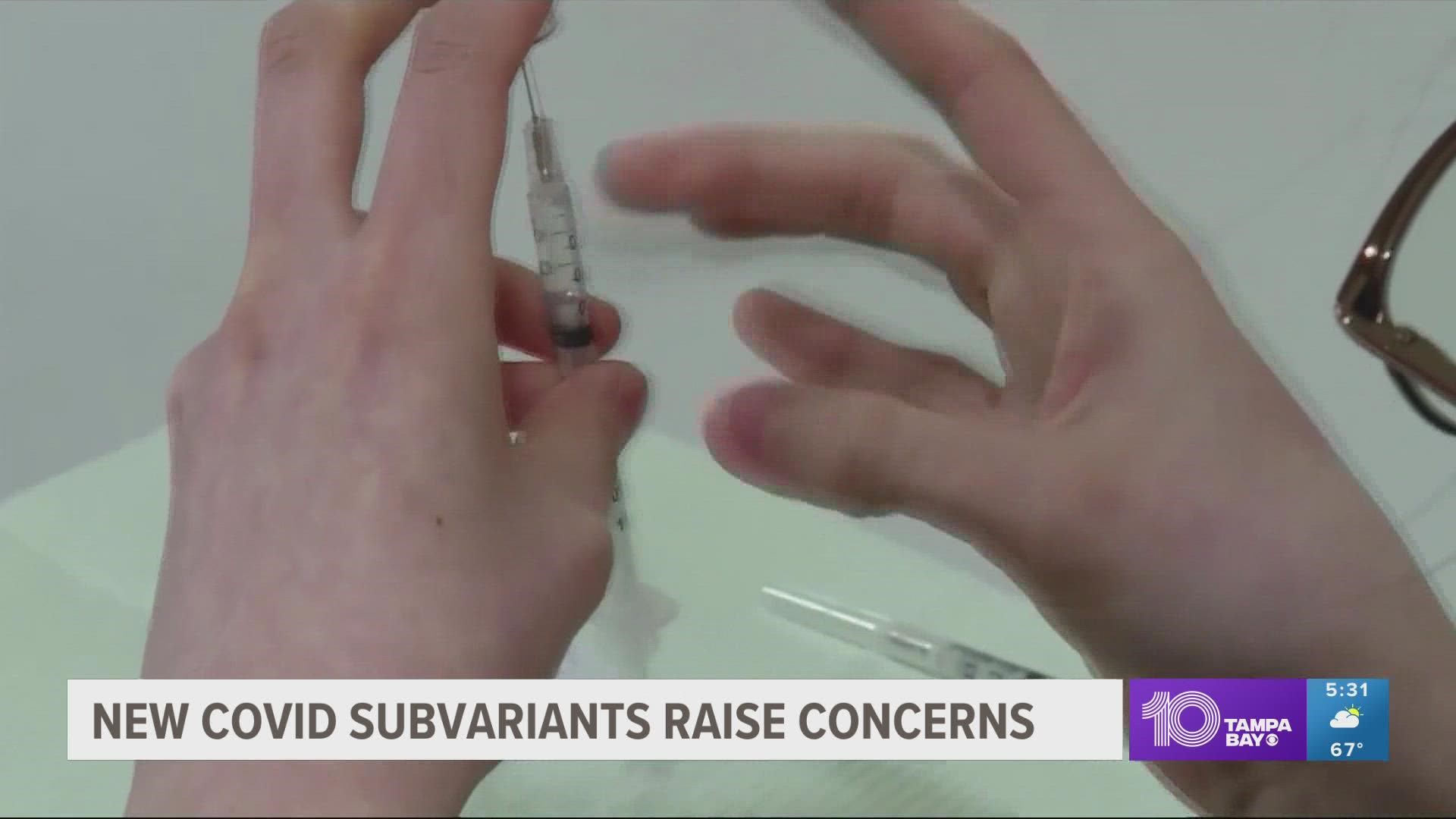TAMPA, Fla. — We get it. Most people have had it with COVID-19 and would love to put the pandemic in the past.
But just as we are hitting lower levels for the first time in months, another pair of sub-variants is raising some serious health concerns.
“Most models that you do see predict a fall and winter wave in the United States,” said Dr. Jason Salemi, who works with the University of South Florida's Public Health Department.
Salemi said the variants, BQ-1 and BQ-1.1, seem to be better at evading vaccines and natural immunity.
“They are better at evading our immune system. Usually, we call that immune escape capability. Or they are more capable of creating more severe illnesses for people. All of these things are bad news for us,” he said.
Also, monoclonal antibody treatments used to protect the immunocompromised aren’t doing much to stop the variants either.
"It’s not a good idea to just wait and say I’m going to get treated when I get infected, there are simple steps that we can take," said Salemi. This bivalent booster is one of those things to protect not only ourselves, but we have to continue to remember that we are in this together.
“We’re not just protecting ourselves even if we are healthy and we think our risk is really low. It may not be as low as we think it is, and we’re also trying to protect those around us but if we get infected, we are more likely to pass it to those who are those vulnerable members of our social circles - that’s also not a good idea.”
One treatment that seems to still be holding up against these newest variants is Pfizer’s antiviral drug Paxlovid. The drug targets a part of the virus that has stayed the same even through several mutations.
Currently, the BQ-1 and BQ-1.1 variants account for about 12 percent of national cases - doubling from just a week earlier.
Health workers suggest masking indoors again, keeping a safe distance and opting for outdoor events.
The newest omicron-specific boosters designed to target BA-4 and BA-5 also seem to be more effective, but less than 10% of eligible Americans have gotten that shot.
“I would say a good message for everybody is that if you haven’t gotten a booster in the past several months and you haven’t been infected within the last several months now is the time to go get that bivalent booster,” said Salemi. “Get that bivalent booster at some point before the end of the calendar year. And usually, I would wait 2 to 3 months after that infection or after that most recent booster.”
Health workers said alerting the public to these newest threats is also becoming increasingly difficult since people seem to be tuning out anything COVID-19 related. The CDC is also cutting back the frequency of its reports.
But, health officials warn that while people might feel like they’re done with the virus, the virus isn’t done with us.
“It is an uphill battle because we all have immense pandemic fatigue, but the virus doesn’t care about that," said Salemi. "So, whether we are sick of the pandemic doesn’t mean we don’t still need to take simple steps.
“Right now, the numbers look good - and that’s a good thing. We’re seeing fewer and fewer people who are hospitalized. And fewer and fewer people who are infected. But that can change very rapidly.”

